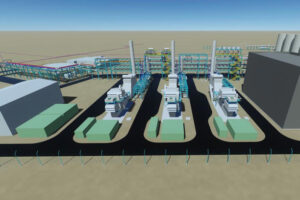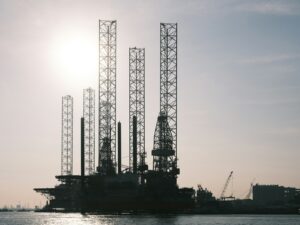Fracking causing rise in methane emissions, study finds
A rise in fracking is playing a key role in increasing levels of methane in the Earth’s atmosphere, scientists have found.
New research published in the journal Biogeosciences has found that since fracking came into use, shale gas has released more methane into the atmosphere as it now represents a larger share of global natural gas production.
Atmospheric methane levels increased significantly from 2008-14 from about 570 teragrams (570 billion tons) annually to around 595 teragrams, largely due to global human-caused methane emissions.
This increase can be put down to shale gas produced in North America, which accounts for around two-thirds of all new natural gas production over the past decade.
‘This recent increase in methane is massive,’ said Robert Howarth, professor of ecology and environmental biology at Cornell University.
‘It’s globally significant. It’s contributed to some of the increase in global warming we’ve seen and shale gas is a major player.
‘If we can stop pouring methane into the atmosphere, it will dissipate,’ he said. ‘It goes away pretty quickly, compared to carbon dioxide. It’s the low-hanging fruit to slow global warming.’
The research provides a counter-argument to previous studies which concluded that biological sources are the cause of the rising methane.
The study found that methane released by shale gas has less of the isotope carbon-13 than methane from conventional natural gas and other fossil fuels does.
This caused confusion in the science community as methane from biological sources such as cows and wetlands also has a low carbon-13 content.
The study concluded that shale gas production in North America since 2008 may have contributed over half of all increased emissions from fossil fuels globally over the last decade, as well as around a third of total increased emissions.
According to Howarth, reducing methane emissions may be crucial for countries when it comes to meeting the targets of the 2015 Paris Agreement.
This is because the climate responds more quickly to changes in methane emissions than decreasing amounts of carbon dioxide, which is a less potent greenhouse gas but hangs in the atmosphere for longer.
‘Reducing methane now can provide an instant way to slow global warming and meet the United Nations’ target of keeping the planet well below a 2-degree Celsius average rise,’ Howarth said.
Other recent studies have too questioned the environmental viability of natural gas, which is often viewed as a ‘bridge’ fuel between fossil fuels and renewable energy sources.
Photo Credit – Pixabay















